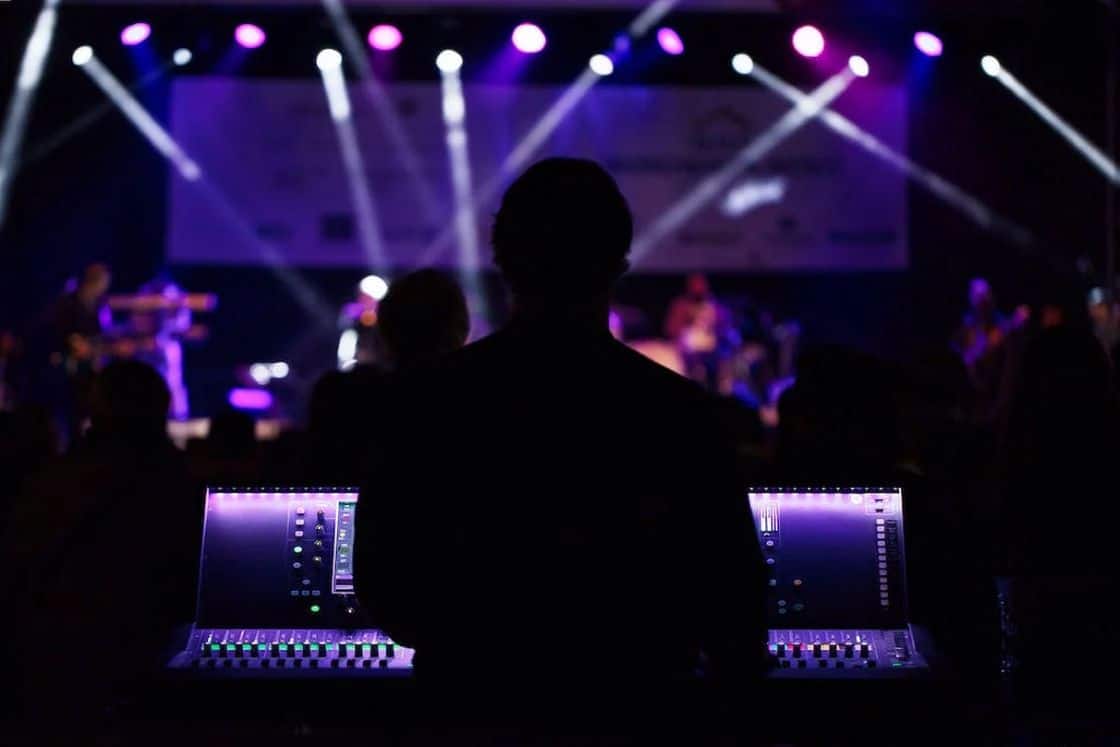Recognizing Event Production: Why It Is Essential for Successful Celebrations
Event production plays a vital duty fit successful events. It involves mindful planning, sychronisation, and execution to ensure every information lines up with the event's vision. This procedure not only improves guest experiences however also helps with purposeful connections among participants. Comprehending the intricacies of event production can substantially impact the general end result. What are the crucial elements that add to an effective event, and how can they be properly handled?
The Duty of Event Production in Creating Memorable Experiences
Numerous variables contribute to the success of an occasion, event production plays a pivotal role in crafting memorable experiences. This complex process incorporates numerous aspects, consisting of preparation, logistics, and implementation. Reliable event production warranties that every information lines up with the general vision, developing a seamless flow that mesmerizes participants. By collaborating timelines, handling resources, and managing technological elements, event producers develop a foundation for impactful experiences.Moreover, they curate environments that resonate with the target audience, boosting involvement and emotional connection. From picking appropriate locations to integrating innovative modern technology, the options made during production substantially influence just how attendees regard and bear in mind the event. By prioritizing top quality and interest to detail, event production transforms normal events right into remarkable moments, leaving long-term perceptions. Eventually, the proficient orchestration of these elements defines the essence of an event, showcasing the value of specialist event production in attaining remarkable results.
Trick Elements of Effective Event Production
Effective event production pivots on a number of essential components that assure success. Preparation and control develop a solid structure, while technical setup demands address logistical needs. Additionally, implementing audience involvement methods improves the total experience, making the event unforgettable.
Preparation and Coordination
Planning and sychronisation offer as the backbone of successful event production, ensuring that every information straightens flawlessly to create a memorable experience. Reliable planning entails establishing a clear vision and objectives, while sychronisation requires the meticulous company of logistics, schedules, and sources. A well-defined timeline is vital, leading all stakeholders through important turning points and tasks. Interaction plays a crucial role, promoting partnership among staff member, vendors, and location personnel. Regular conferences and updates help to attend to challenges quickly, making certain that everybody remains straightened with the event goals. Ultimately, a structured strategy to preparation and control not just improves performance yet also greatly adds to the overall success and satisfaction of the event for guests and coordinators alike.
Technical Arrangement Requirements
A successful event depends heavily on its technological arrangement requirements, which include necessary elements such as audio-visual tools, lighting, hosting, and connection. Audio-visual tools consists of microphones, speakers, and projectors, guaranteeing that presentations and efficiencies are supplied plainly. Correct illumination enhances the atmosphere and highlights vital areas, while organizing offers the needed system for audio speakers and performers. Connection, consisting of Wi-Fi and electrical access, is crucial for seamless communication and innovation integration. Each part must be thoroughly planned and implemented, customized to the event's specific demands. Insufficient technical configurations can bring about interruptions, adversely affecting the total experience for guests, underscoring the importance of extensive prep work and attention to information in event production.
Target Market Interaction Methods

The Value of Planning and Sychronisation
Preparation and sychronisation are critical to the success of any kind of event production. Reliable timeline administration, resource appropriation approaches, and group interaction characteristics play crucial functions in making certain that all aspects integrated effortlessly. Without an organized method to these aspects, events run the risk of encountering hold-ups, budget overruns, and miscommunication among group participants.
Effective Timeline Administration


While effective event production frequently hinges on creativity and implementation, effective timeline management remains a crucial element that can not be forgotten. A well-structured timeline works as the foundation of any type of event, ensuring that each stage is implemented in a prompt way. It enables the coordination of different tasks, from location configuration to visitor arrivals, while avoiding potential traffic jams. By plainly outlining due dates and obligations, event planners can maintain emphasis and adapt to unexpected obstacles. In addition, a meticulously crafted timeline fosters communication amongst team participants, advertising liability and cooperation. Inevitably, efficient timeline monitoring not just enhances functional efficiency but additionally adds greatly to the overall success and smooth execution of the event, leaving attendees with an unforgettable experience.
Source Allowance Strategies
Reliable resource appropriation approaches are vital for web the successful implementation of any event. Proper planning permits event coordinators to recognize and disperse sources, such as finances, employees, and materials, in a fashion that makes best use of efficiency. By reviewing the particular needs of each element of the event, coordinators can focus on jobs and assign sources accordingly. Control amongst different departments makes certain that all elements, from satisfying audiovisual needs, are properly sustained. This tactical approach not only reduces waste but also improves the general experience for participants. In addition, anticipating possible challenges and having backup strategies in area permits for smoother operations. Ultimately, effective resource appropriation adds significantly to attaining event goals and assuring a remarkable celebration.
Group Communication Characteristics
Exactly how can seamless communication among team members transform the event production process? Reliable communication is vital for working with tasks, sharing updates, and dealing with challenges in real-time. When staff member engage in open discussion, they can promptly identify potential issues and create options collaboratively, minimizing delays and misconceptions. This dynamic fosters a natural atmosphere where everybody understands their duties and obligations, causing an extra synchronized initiative. Furthermore, regular check-ins and responses loopholes improve responsibility and guarantee placement with the event's you can find out more objectives. By focusing on communication approaches, groups can streamline process, bolster spirits, and eventually elevate the general quality of the event. Successful gatherings rest on the ability to connect successfully, making it a necessary element of event production.
Enhancing Attendee Involvement With Creative Style
Imaginative style plays a vital function in improving participant interaction at events, as it promotes an immersive atmosphere that astounds participants' focus. By integrating innovative visuals, interactive components, and thematic decoration, event planners can create remarkable experiences that resonate with participants. Thoughtful format designs advertise movement and expedition, encouraging visitors to engage with displays and each other.Incorporating innovation, such as augmented truth or live polling, additional improves the here experience, permitting real-time feedback and communication. Furthermore, sensory elements like lighting, audio, and scent can stimulate emotions and develop a much more interesting atmosphere.The usage of narration via layout assists communicate the event's purpose and message, making it extra relatable for guests. Ultimately, creative style not only improves involvement but additionally strengthens connections amongst participants, leaving a lasting perception that expands beyond the event itself. This calculated approach to layout is essential for successful celebrations.
Taking care of Logistics for a Smooth Implementation
While the excitement of an event can attract participants in, managing logistics is essential to protect a seamless execution. This entails thoroughly coordinating different elements, from location selection and layout to event catering and transport. Reliable logistics monitoring guarantees that all components line up, permitting a smooth circulation from enrollment to the conclusion of the event.Additionally, a clear communication strategy among all stakeholders is important. This consists of personnel, vendors, and volunteers, that need to be educated of their functions and duties. Expecting prospective challenges, such as equipment failure or unanticipated climate problems, can better improve the event's success.Creating a comprehensive timeline assists maintain the team on course and allows for timely modifications. Ultimately, well-managed logistics not only help with a pleasurable experience for guests but additionally mirror the professionalism and integrity of the coordinators, adding to the overall success of the gathering.

The Effect of Modern Technology on Event Production
What function does modern technology play fit modern-day event production? Modern technology has actually come to be a cornerstone of reliable event production, enhancing both intending and execution processes. From advanced enrollment systems to interactive applications, modern technology improves participant monitoring and enhances involvement. Digital event systems enable coordinators to get to larger audiences, breaking geographical obstacles and promoting hybrid gatherings that combine in-person and online experiences.Additionally, audiovisual technologies, such as high-definition displays and stereos, boost the top quality of discussions and performances, making certain an unforgettable experience for guests - event production charlotte. Social network integration allows real-time comments and communication, cultivating area interaction before, during, and after the event. In addition, data analytics tools help organizers in monitoring participant habits and preferences, making it possible for tailored experiences that reverberate with diverse audiences. Overall, the combination of technology in event production not just boosts operational effectiveness but additionally enriches guest experiences, inevitably adding to the success of the event
Evaluating Success: Determining the End Results of Your Event
Success in event production rests on reliable analysis, which involves measuring a selection of results to examine the general impact of an occasion. To attain this, organizers can use both qualitative and quantitative metrics. Measurable procedures might consist of participation figures, ticket sales, and revenue created, while qualitative assessments may include attendee fulfillment surveys and comments forms.Additionally, analyzing social networks engagement and media coverage can supply insights into the event's reach and brand name influence. Contrasting these metrics against predefined objectives helps figure out if the goals were met.Furthermore, post-event debriefs with the planning team can uncover lessons found out and locations for improvement. By methodically assessing these outcomes, event manufacturers can enhance future events, ensuring continuous growth and success. Eventually, a complete evaluation not just highlights accomplishments yet additionally informs critical choices for succeeding events, cultivating a culture of quality in event production.
Frequently Asked Questions
What Certifications Should an Event Producer Have?
Event manufacturers need to have solid business skills, imagination, and efficient interaction capabilities. A history in task management, budgeting, and negotiation is vital. Pertinent accreditations and experience in diverse event kinds further enhance their certifications.
Just How Can I Reduce Event Production Prices Properly?
To successfully minimize event production expenses, one can enhance vendor choice, bargain agreements, utilize in-house resources, focus on crucial elements, implement modern technology for performance, and discover sponsorship opportunities to counter costs without endangering top quality.
What Are the Usual Difficulties in Event Production?
Typical difficulties in event production include budget plan restrictions, logistical control, supplier monitoring, time limitations, attendee involvement, technological difficulties, and unforeseen situations - event production charlotte. Each aspect can significantly affect the overall success and smooth execution of the event
Exactly how Do I Pick the Right Location for My Event?
Picking the best place includes taking into consideration elements such as place, capability, services, and budget. Furthermore, reviewing ease of access and atmosphere guarantees the selected area straightens with the event's objectives and improves the general participant experience.
What Is the Typical Timeline for Preparation an Event?
The normal timeline for planning an event differs, but generally consists of stages such as concept growth, place choice, vendor control, promo, and last prep work, frequently covering a number of months to guarantee an effective implementation.